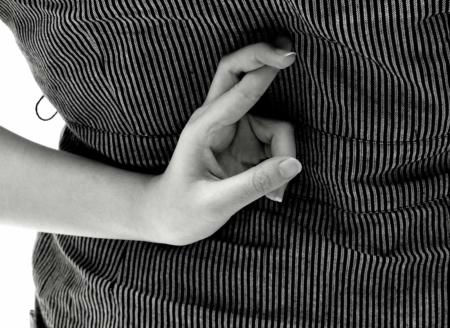Is lying always wrong? Dress code for church?
Q. In a book I read recently explaining the teaching of the church in simple language, it states that a person cannot lie even to save a life since you "cannot do evil that good may come of it."
This would seem to contradict the right to defend people even if others were trying to kill them: e.g., if Nazi soldiers were at the door asking if any Jews were in that house, I would think that lying to save Jews who in fact were in the house would actually prevent a greater evil from happening.
It seems to me that, when the choice is between lying and abetting a murder, you should choose the lesser of the two evils. Please help me because the question has come up in our CCD class. (Milladore, Wisconsin)
A. You have put your finger on a neuralgic issue that has troubled Catholic thinkers for centuries. The common Catholic teaching is that lying is always wrong, even to save a life; that is clearly the majority position historically, and is reflected in the Catechism of the Catholic Church, which says in No. 2485: "By its very nature, lying is to be condemned. It is a profanation of speech, whereas the purpose of speech is to communicate known truth to others."
However, there has always been a lesser but significant school of thought that has argued that it is sometimes justified to lie, particularly to protect the innocent from harm, and the church has not resolved the dispute infallibly.
Interestingly, the earlier edition (1994) of the catechism said that to lie is "to speak or act against the truth in order to lead into error someone who has the right to know the truth." But that text was revised in the 1997 edition, which has now eliminated the words "who has the right to know the truth" (No. 2483).
But since the catechism does not claim to propose infallible teaching on every topic it treats, the question is hardly settled forever. What really is at play here are two conflicting intuitions, both very deep and both valid.
First, that trust in the word of another is essential to the human enterprise; but equally, that no one is obliged to assist someone bent on unjust aggression. Hence, the long historical dispute over what exactly constitutes lying.
My own preference is for the "right to know" position, and I claim Pope Francis as an ally here. He lived in Argentina under a brutal dictatorship, which kidnapped and killed its own citizens and, in a recently published book ("Pope Francis: His Life in His Own Words"), he tells of having helped to smuggle a young man out of the country by giving him his own identity card and dressing him in a clerical collar.
In the situation you raise, when Nazis invade your home in search of Jews, some moralists prefer to indulge in mental gymnastics and tell you that you need to answer ambiguously by saying something like, "Why would I hide Jews, when I have my own family to worry about?"
Instead, I would feel completely comfortable in saying, "No. No Jews are here," and I think the vast majority of well-formed Catholics would agree with me.
Q. Why are people allowed to dress scantily for church? It seems so disrespectful. Isn't there a dress code? (Schenectady, New York)
Q. I would like you to address the way some women dress coming to Mass, revealing more than needs to be seen. Please help. (Bedford, Virginia)
A. The two pleas above are but a slice of similar ones that arrive regularly at this desk, especially during the summer months. There is a fair amount of subjectivity as to exactly what clothing is appropriate, and no universal church rule exists.
But I would be guided by the observation in the Catechism of the Catholic Church (No. 1387), which says, "Bodily demeanor (gestures, clothing) ought to convey the respect, solemnity and joy of this moment when Christ becomes our guest."
Specific guidelines are best left to individual parishes since cultures and climates vary, but occasional statements in bulletins or on websites can serve as helpful reminders that decency is always the governing standard.
---
Questions may be sent to Father Kenneth Doyle at askfatherdoyle@gmail.com and 40 Hopewell St., Albany, N.Y. 12208.
- Father Kenneth Doyle is a columnist for Catholic News Service



















